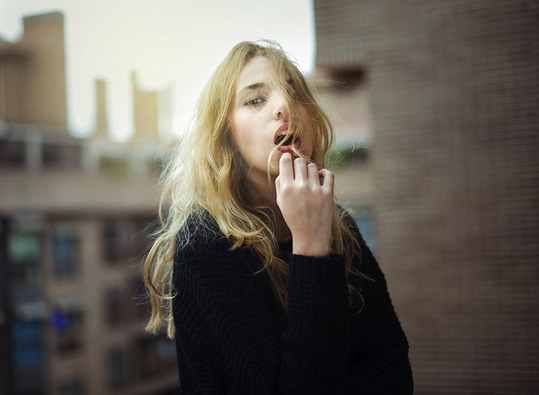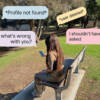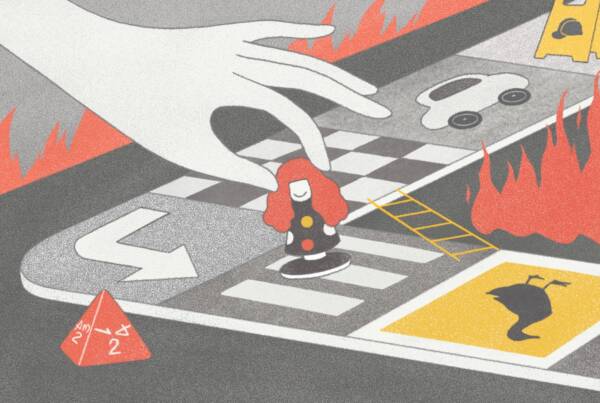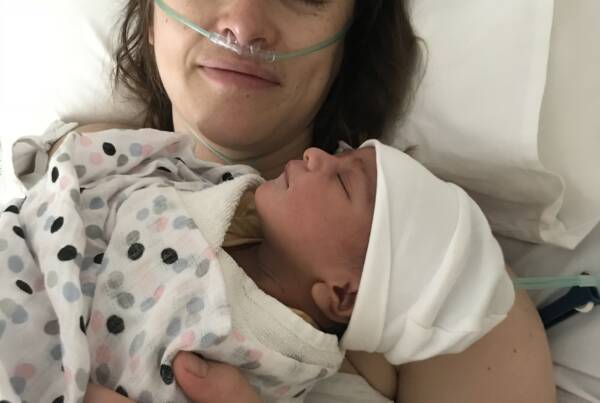Writing by Zadie McCracken // photograph by Pi Rawinad
Writing by Zadie McCracken // photograph by Pi Rawinad
From the thick blanket of the night sky, Alex emerged wearing a lopsided flower crown and a floppy, white shirt with a plunging neckline. Her pasty arms sprang from slits in the fabric like flower stems. Her thighs were crimson with sunburn. “I know you!” she exclaimed from the crowded trampoline, “Come here”.
I stumbled like a foal in my boots, knuckle-white clutching my red cup. “Hi,” I said, “How are you?”
Alex and I met as babies, crawling towards each other with distinct feminine independence, like bugs on grass in the summer backyards of our families, the golden light of a new decade, the year of the snake, 2001. Our parents had been friends for ages. We do not acknowledge this in light of our more recent connection: our introductions to one another by mutual friends at picnic parties, our tipsy chatter, our intersection at the core of Melbourne’s indie kid scene. “Oh, how is she?” my mother asks of Alex on the phone, chirping light, “Apparently she’s gone completely off the rails”.
I settled next to Alex and her huge blue eyes assaulted me. She had full pink lips and jet-black hair – bleached and re-dyed in her bathroom, she told me, made anew by Garnier, chicer than the mouse-brown she was born with. She spoke with wild abandon, as if she could hardly wait to reveal herself to the circle, make clear her intentions and rebellions, as if she was pushing against a cultural narrative surrounding her, gossip and rumour that didn’t actually exist. When scandalous influencer Caroline Calloway announced her first memoir on Instagram, she wrote as a caption: The antidote to shame is exposure. Perhaps Alex felt so much shame she needed to expose herself all the time. Perhaps she was just a loud-mouth looking for attention. Perhaps she was as honest and abashed as she appeared to be; so evolved her flaws were #goals.
Alex told me she was a “nympho”, that she had “a bit of a problem”, that she had probably slept with more than thirty people. Her confession wasn’t confessional. She is the poster child for a generation that proclaims sex work as real work and understands acknowledgement of mental illness or failure as a strength, rather than a weakness; the generation destined to avenge Sylvia Plath’s death and rectify a new statute of femaleness in which nothing can ever be complicated or wrong, in which women existing outside the bounds of explicitly traditional femininity, or even just existing publicly in a ‘man’s world’, are heralded the ultimate form of good. Jia Tolentino writes of this in Trick Mirror, detailing “the kingdom of the difficult woman”, explaining that anything a woman does and is criticised for can be rendered proof of her “unruliness”, her defiance in the face of misogyny, even if she is rich, white, straight, and powerful; even if, in truth, her defiance isn’t revolutionary at all. “Feminists are still looking for idols,” Tolentino writes, “just ones who are idolised on our own complicated terms”.
Alex was certainly an idol – a shining beacon of sex god wonder, a Samantha sparkling in the crowd of Carries. The people she had slept with were mainly men, she said, but in truth she was “a romantic lesbian” who liked “converting straight girls”. She was queer, in the same way everyone is queer, the same way everyone’s into experimenting, casual sex, and the dissolution of gender lines. I related her past to mine, recounting stories of my own straight girls, my ex-girlfriends, my hook-ups and heroes, my kissing history. I spilt the way she spilt, open and outrageous, and I imagined us as children, touching hands in the backseat of her dad’s car.
The party raged on and Alex disappeared into its folds, greeting new friends, drinking endlessly. She was fearless in her pursuit of others – she would collect and corner them, engaging them in intense, hour-long conversations. She wasn’t only a depository of information about her own sexual past; she was wonderer, a stoner, a philosopher, a brain on two-bit giraffe legs. She looked at the sky and only saw the stars, even behind smoke fumes, looming bushfires, behind the climate emergency that was scraping its way into each of our lives, so that by the time we left the party, reports of the first houses destroyed by bushfires would gleam on our smart screens. Alex asked questions of you as if you were the most important person in the world. Her focus was pious; people were opportunities. She didn’t seem to know what for – but everything was essential, everything needed to be remembered and documented. Doors needed to be unlocked. She was a key.
In me, Alex sparked a longing, sticky and fine. Whenever she left me I felt like an untreated gunshot wound, a slowly wilting pot plant, a hole at a construction site. Waiting to be filled by her.
She smoked by the fire pit, sticking her hand out to strangers by way of introduction. The smell of weed was heavy in the air, and I hadn’t eaten all day. Walking towards her, feet sore, brain soaked in alcohol so that I felt sexy and cool instead of jittery and noxious, I dropped my phone, face-flat on the concrete. I cringed, delicately cradled it – smashed, but not beyond function. Everything was going to be okay. There would be no disaster or tear or storm.
I crouched awkwardly by Alex like an extra limb while she spoke to someone else with electric blue streaks in their fringe. Younger guys crowded the broken bench, getting high and staring at her, transfixed. They wanted to go clubbing, they said, to us, to her. Would Alex come clubbing with them? She laughed, husky and tired like a life-long smoker. “Come on,” one of the guys said, brief infatuation sticky in his voice. “No thanks,” Alex replied. She had no problem saying it. They shrugged, surrendered to her will like worshippers in America megachurches. “Fucking men,” I said as we walked away, making a play at a world I didn’t understand, throwing a well-iterated, piss-weak comment to establish my distance from men, my womanhood, the singular essence of my likeness to her. “You mean boys,” she replied sharply, scoffing and tossing her hair.
Later, I watched her schmooze a guy a year older. She kept leaning closer, swallowing her spit as she spoke. They shared a cigarette and a bottle of beer. She peeled the label off. Watching them absent-mindedly through the glass doors of the Fitzroy manor, my chest spiked with envy, certain they would sleep together, and certain of the way our lives had split when, at eight years old, I moved away from her, into a small town where life was insular and unchanging. For in essence, Alex and I grew up the same way: our parents were artists without much money, living in Melbourne during the ‘90s, calling each other ‘spunks’, dragging instruments from suburb to suburb, approaching parenthood with seriousness and ferocity and care. Yet I had become this sexless, nerdy, anxious person, simultaneously successful and utterly empty, while Alex was a gorgeous slut, fearless and drunk and wild and young. She was the picture of youth, and I had tried too hard to grow up.
I watched her look into his eyes as his face grew dim and holy, as if he were waking up.
I wanted her to talk to me that way. I wanted her to be attracted to me, to see me, to want me. I wanted to be worth something to this upper-sheen of mad teen-dom. I wanted whatever she had, whatever factors in our parallel childhoods she had gained while I was sleepwalking. I wanted to fulfil the ideal of sexual desirability she superseded. I wanted to be that girl. Fun, pretty, sexy, cool, wanted, “nympho”. I didn’t care how destructive she was or felt – when you’ve strived to be perfect your entire life, and failed, all you want to do is blow everything up and surrender to the “whore” of the Madonna-Whore complex. When you’ve never experienced something as culturally significant as heterosexual sex, all you want to do is experience it, again and again and again, as Alex did. All you want is to be alluring, and equal. When you’re seventeen, losing your virginity is an imperative.
At the party, feminism failed me. I was a cultural casualty. I believed nothing I had previously. Alex was it – her success in gaining male validation and her regular, casual sex were the epitome of modern femininity, of acceptable, cool femininity. It was only thing that mattered. Tolentino describes my yearning with ridiculous accuracy, “We have a situation in which women reject conventional femininity in the interest of liberation, and then find themselves alternately despising and craving it”.
Of course, I would never be Alex. I had never been her, I would never achieve her. If I had stood at the edge of the house’s balcony and leaned over during the sunset, I might have registered: I didn’t even want to be her. There were reasons for I being I.
When we were kids, we slept next to each other listening to the sound of a band rehearsal. We knew studios and galleries, and the way around the city, and when she cut her own fringe I felt it, from two hours away by car, hair drifting to the floor like hay in a barn yard, and her younger brother, three years younger like my younger brother, calling her to dinner from the next room, notifications from sugar daddies and potential lovers open on her untouched phone screen. I saw the way forward, her life, the life, and I chose academics and boyfriends who ran away instead.
Even later Alex stared at me dead in the eyes for thirty seconds, and then she touched the back of her hand to my knee and she told me three true facts about myself: “You were a lesbian before you were bisexual. You’ve fucked less than seven people. You weren’t a young whore”. I nodded, complacent. “Knew it. I’m kinda psychic, you know,” she said. I wondered when she had gained her powers. I wondered if I could ever steal them. “Nah,” I said, laughing breathily, “Everyone knows those things about me”.
“I didn’t. I don’t know you”.
The ending came too slow – the night wound down in glittery fits, people filtered out and I didn’t ever see them leave. I was wine-drunk, I was silly and sick. My friends went home with cute boys I’d hit on unsuccessfully, my Uber cancelled on me three times. Alex was still there when I left, when I dragged my exhausted body up into my apartment, where I could feel safe to feel stupid again. She was still smoking and drinking and talking, alive with moonlight, rough in the way youth is meant to be rough, in a tough way, in the toughness I never gained. She was in my peripheral, making a move, perfectly performing her playful routine. She was cinematic, malleable.
It is true that women are often pulled into two categories. I have been comparing myself, subconsciously, automatically, to other women my entire life. It’s a well-known practice in feminism, something condemned for its patriarchal rendering of women as inherently in competition with one another. Subsequently, a feminist woman who dares to compare is subtly doomed and alienated by the movement. We all have a responsibility, feminism implies, To lift each other up, to make the world better, no matter what. There is no room for pettiness or jealously here, least of all when it is charged by male validation and heteronormative sexual standards.
Still I walked a circle around the trap and fell right in. It bears repeating: whatever she has, I can’t have.
Tolentino ends her essay on difficult women by establishing that she wants a “freedom…located in a world where we wouldn’t need to love women, or even monitor our feelings about women as meaningful”. Next to this phrase I smack two exclamation points. If only we lived there.
“Are you a feminist?” Alex asked me, almost immediately. “Yeah,” I said, “Yeah, of course”. “Oh, good,” she said, taking my hand, “We’re going to be great friends”.
In the Uber, I thought about the careless way Alex must think. I thought about her as a part of a great collective of women and girls: Elizabeth Wurtzel, Lana Del Rey, Winona Ryder, Jean Seberg, Carrie Fisher, Lena Dunham. The “crazy” women, unruly, rule-breaking. Drug addicts, artists, problematics, weirdos, historically deemed unforgivable but newly celebrated in feminist culture, arising from the ash of social exclusion to become icons. How could I become someone like that? How could I entrance, get attention? How could I get men to fuck me? How could I be free, in the way Alex seemed free? How could I drink and smoke and fuck without feeling guilty, and then somehow also be praised for my difficulties? How could I erase my cultural destiny as a wash-away, adorable and admirable but dull, dull, dull?
“But why would these ever be our only options?” Tolentino objects.
Why couldn’t womanhood be everything at once, like a fro-yo you can load with every flavour in the world? Why couldn’t womanhood be a smorgasbord, an undefined mass?
I fell asleep to the sound of an ambulance and birds screaming somewhere far away. When we were kids, Alex and I listened to our parents talk about music and gender from her backyard playground. We knew nothing, and we were nothing. Two children, like black spots in the middle of the sun, playing.







